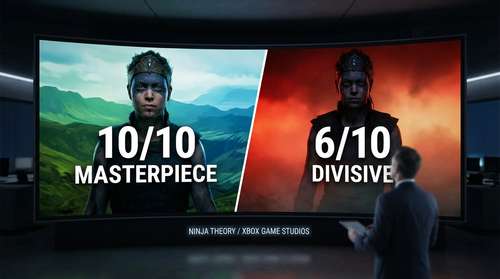 In the last few years, Artificial Intelligence (AI) has made significant progress across various industries, such as automobiles, social media, healthcare, content, e-commerce, and others. However, the technology is now being adopted by the gaming sector as well. According to a 2021 Accenture report, the market value of the global gaming industry is over $300 billion. This number is bound to grow and reach new heights as technologies such as blockchain, and AI are integrated into the industry. The speed with which AI systems and models are evolving can disrupt the gaming industry for players, eSports athletes, developers, and studios. The technology is already being leveraged to improve various facets of the game. Let us take you through these and share insights on AI's potential use cases in gaming.AI for Developers and Studios
In the last few years, Artificial Intelligence (AI) has made significant progress across various industries, such as automobiles, social media, healthcare, content, e-commerce, and others. However, the technology is now being adopted by the gaming sector as well. According to a 2021 Accenture report, the market value of the global gaming industry is over $300 billion. This number is bound to grow and reach new heights as technologies such as blockchain, and AI are integrated into the industry. The speed with which AI systems and models are evolving can disrupt the gaming industry for players, eSports athletes, developers, and studios. The technology is already being leveraged to improve various facets of the game. Let us take you through these and share insights on AI's potential use cases in gaming.AI for Developers and Studios
When it comes to game developers, they have numerous challenging processes such as building characters, creating paths in open-world games, designing the player’s surroundings and its entities, testing the game, understanding the user response, and more. Although the industry has an efficient game development lifecycle, AI can transform the status quo. Here’s how:Data Science for User Behavior
Considering how players interact with the game, they produce astronomical amounts of data. This can be fed into systems to understand factors such as how players interact with their surroundings, the difficulty they are comfortable with, why they stop playing a game, and more. Based on this, the developers will be able to understand the pros and cons of the game and make improvements in their subsequent versions or games.AI-Generated Worlds
Games today have intricate 3D models of every object, character, and entity. It is tedious and cumbersome to bring these together and build a world with them. Developers and studios can leverage AI to learn about gameplays and worlds through historical data and then generate different world variations based on what it learns. It would make the development process much easier and more cost-effective.AI for Game Testing
The testing phase requires gamers with varying levels of expertise to play the game. Only this way can the studios get accurate feedback about the game. Considering the several actors involved in this process, it has too much dependability.  AI systems can replace the process by playing games, drawing insights, and arriving at conclusions. However, the developers must ensure that the AI functions as an average gamer or expert. Only then will the learnings from it be valuable. These two are significant applications of AI, which are developer/company-facing. However, there are more facets that developers can use AI for. Those would be player-facing.AI for Players and Gamers
AI systems can replace the process by playing games, drawing insights, and arriving at conclusions. However, the developers must ensure that the AI functions as an average gamer or expert. Only then will the learnings from it be valuable. These two are significant applications of AI, which are developer/company-facing. However, there are more facets that developers can use AI for. Those would be player-facing.AI for Players and Gamers
In general, gamers have always wanted studios to push the boundaries regarding how realistic and immersive the games are.AI can take this to a new level in the following ways:Dynamic Non-Player Characters (NPCs)
With AI, NPCs can become far more receptive to player movements, adapt, and react accordingly.A simple example of this could be a car racing game. Some racing games have traffic involved, and these are non-player entities. The traffic would also adapt and change based on your driving patterns, the lanes you choose, and other factors.Immersive Simulations
AI can create life-like imagery and world conditions. Simulation games such as The Sims or different vehicle simulators can become far more real to gamers. This could work incredibly well when integrated with AR/VR games. Since AR/VR technologies aim to bring players closer to the game’s reality, AI integration would elevate the experience.Adaptive Difficulty Levels
Usually, games have multiple difficulty levels that players must choose before they begin playing. AI can potentially eliminate the need for this. The gamer can start playing the game and, based on their mood, their reaction to challenges before them, and more could help AI tweak the difficulty level. This way, the gamer can go through multiple difficulty levels without even realizing it in one gaming session.AI for Prevention of Cheating
Online games is known to have players who cheat in the game with the help of some illicit software. Here, AI systems can be used to understand the pattern of all the moves that players make and identify if they are cheating. However, players understand this and use AI software to be able to cheat in realistic ways. This will be a constant challenge and will be minimized as the field progresses.The Future
Overall, these are a few ways in which AI can help the gaming industry. However, it is still in its nascent stages. If used well, AI can offer truly immersive experiences that we’ve never seen before.However, it is also important to consider responsibility while leveraging the technology. AI systems are known to affect user behavior; hence, any developer or studio should use and deploy the tech with absolute assurance of the safety of people.




